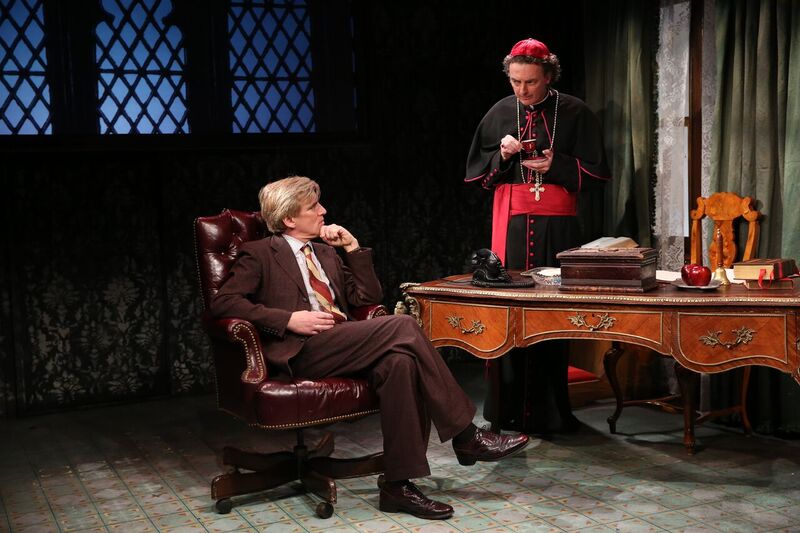

Larry Kirwan's play Rebel in the Soul tells the story of Dr. Noël Browne, a young doctor elected to the Irish Parliament in 1948. Born into poverty, Browne had a rough childhood: his father died of tuberculosis when he was very young, forcing Browne's family to move to England to live with his mother's sister, and shortly thereafter, Browne's mother and brother died of tuberculosis as well. Against all odds, however, Browne rose to become a successful doctor and Irish Minister for Health. His driving ambition was to rid Ireland of the curse of tuberculosis and give the poorer classes access to healthcare. Browne's most controversial scheme, a plan to give women and children under the age of 16 free postnatal care, met with fierce opposition from both the Catholic church and members of Browne's own party. As Kirwan's play illustrates, Browne tried to change the country too quickly, and the result was a complete government breakdown.
Directed by Charlotte Moore in an intimate setting at the Irish Repertory Theatre, Rebel in the Soul dramatizes Browne's rise to fame, his attempts to change Ireland's healthcare system, and his conflict with church and government leaders. It is a politically-charged drama that's both informative and compelling.
Patrick Fitzgerald plays Dr. Noël Browne with brilliant intensity, perfectly capturing the character's arrogance and ambition. While he sometimes comes off as a bit neurotic, Fitzgerald succeeds in rendering his character larger than life. Sean Gormley plays Seán McBride, leader of the Labor party and former chief of the Irish Republican Army. And John Keating delivers a masterful performance as Dr. John Charles McQuaid, Archbishop of Dublin. Gormley and Keating play their characters with nuance and authenticity, and their calm, subtle performances contrast sharply with Fitzgerald's overwrought passion in the role of Browne. Sarah Street rounds out the cast as Phyllis, Browne's supportive but sometimes exasperated wife. As the only woman in the cast, Street holds her own against the politically powerful men around her, and delivers a sincere performance that in some ways marks her character as the most clear-sighted in the play.
With the recent healthcare debate in the United States, Rebel in the Soul premieres at a particularly relevant time, and the issues it raises about church and state are as pertinent today as they were in 1948. The play is a bit heavy on the monologues, but then again, these provide character insights that the audience couldn't get any other way, much like soliloquies in a Shakespeare play.
In short, Rebel in the Soul is your chance to experience some of the most formidable characters in Irish history up close and personal in Irish Repertory Theatre's cozy atmosphere.